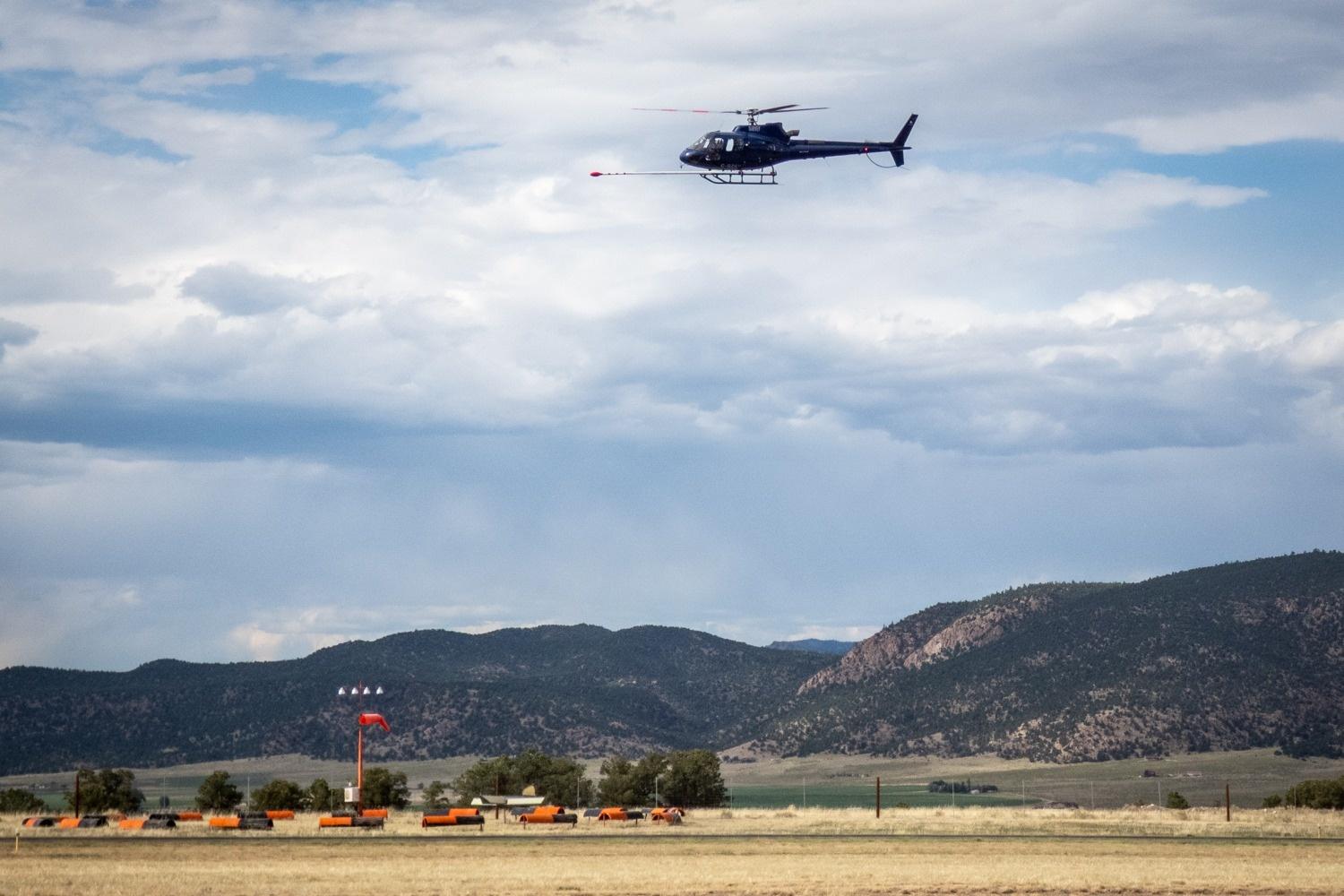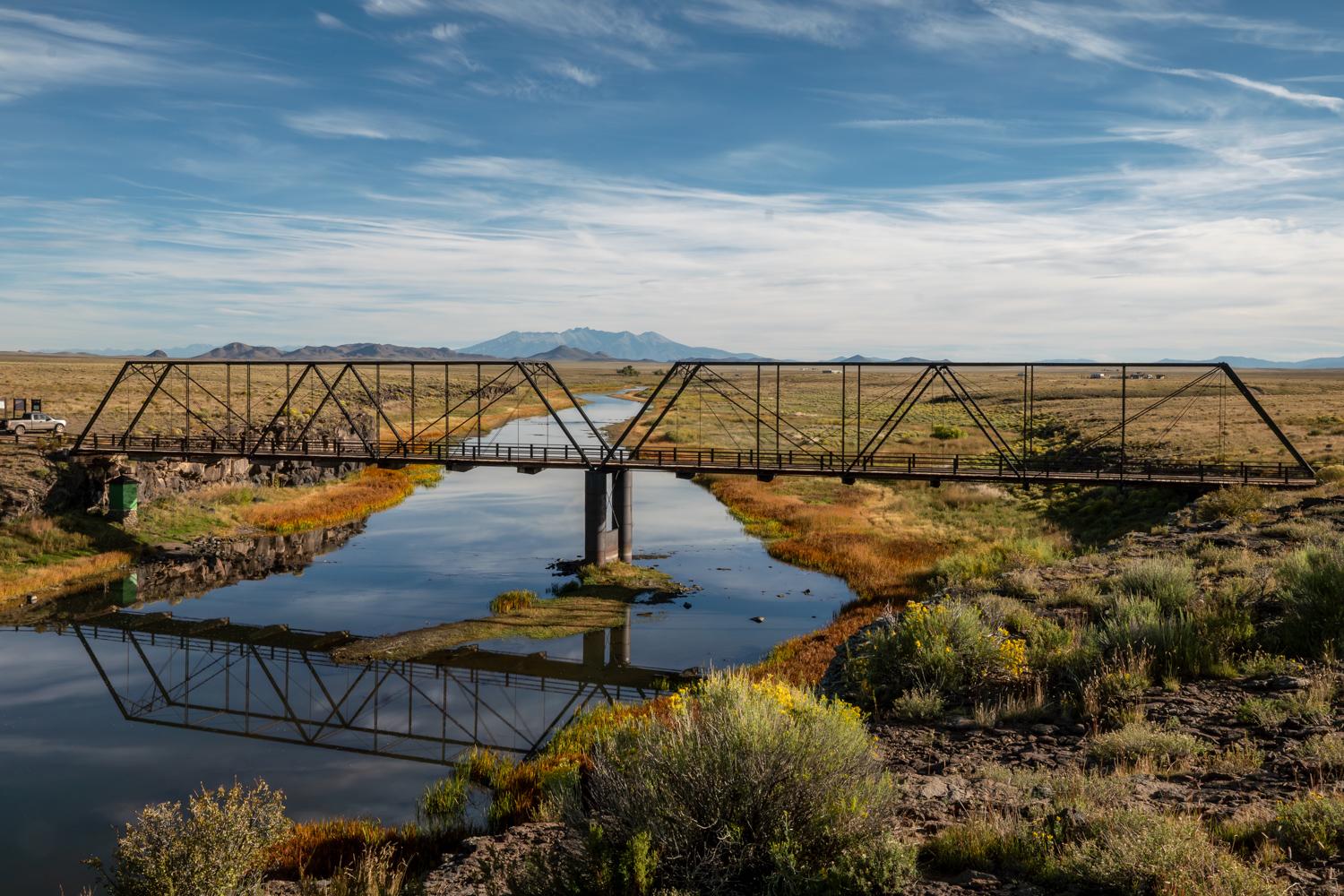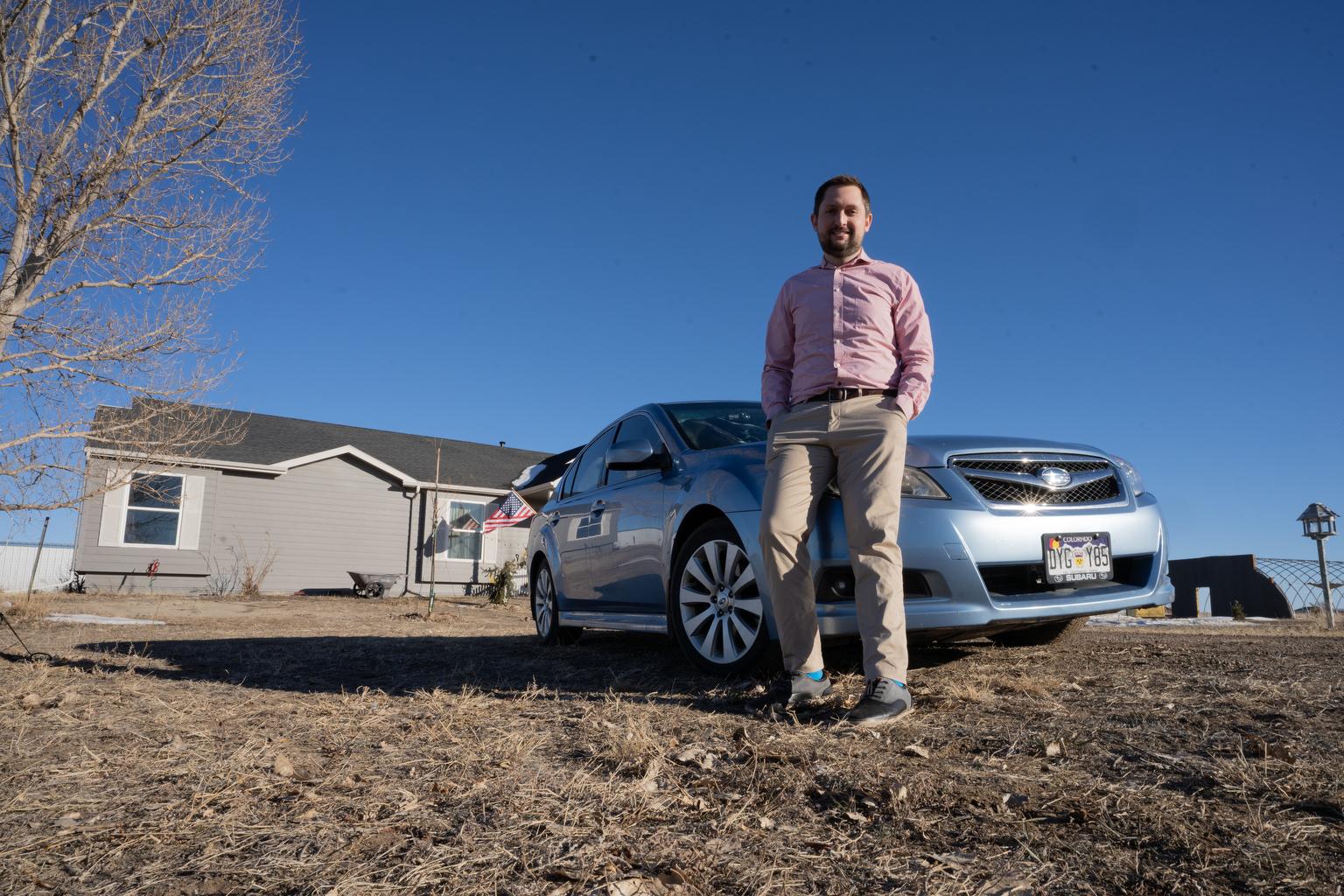
Roger Bland of Byers was zipping down Interstate 70 toward Denver on a Friday afternoon last July when he noticed two cars on the right shoulder.
As he was moving into the left lane, he saw what turned out to be the reason those two vehicles were disabled: a sizable piece of pavement had popped loose and was sitting in the middle of the road.
But it was too late to avoid it.
“I didn’t really see it until maybe one or two seconds before I hit it,” Bland said.
Bland said his sedan missed a large pothole but struck the protruding pavement at around 80 miles per hour, blowing out his two passenger-side tires. He was able to pull over safely, move the loose pavement out of the road, and get his car towed.
The damage to his car, though, added up to thousands of dollars. Bland didn’t want to pay for it out of his own pocket, but the state denied his claim for payment, citing the Colorado Governmental Immunity Act.
So Bland reached out to CPR News via our Colorado Wonders series. He wanted to alert his fellow Coloradans that the state can avoid liability in situations like his. And he had some questions, too: Why does the immunity law exist? And how often are claims like his actually successful?
The idea behind Colorado’s immunity law, and many others like it, goes back centuries.
The idea of “sovereign immunity” goes back to ancient times, legal scholars say. An old British common law maxim, for instance, held that the “king can do no wrong” and could not be sued.
In more recent times, said Harry Surden, professor of law at the University of Colorado, the laws are used to balance accountability for the government against the financial hardship a large number of claims or lawsuits would create.
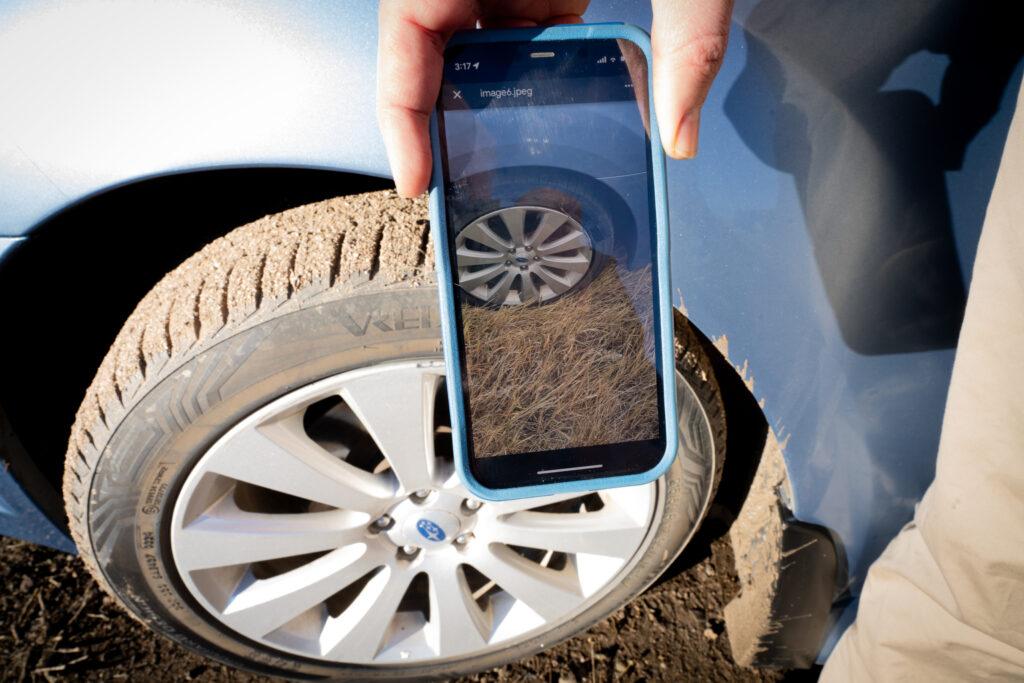
“Every time the state pays out a claim, it's actually all the other taxpayers who are paying for it,” he said. “If we were to live in a world where every time somebody popped a tire from a pothole, that would effectively require raising taxes and all the other taxpayers.”
Most countries and U.S. states have their own governmental immunity acts and Colorado’s isn’t particularly unusual, Surden said. Colorado’s law, like many other modern versions, does, however, make exceptions to governmental immunity in some limited circumstances.
One of those exceptions is for dangerous road conditions. But few motorists get payouts from the state
The law allows state officials to analyze whether the state failed to act in a reasonable amount of time after it learned of a potential hazard, said Doug Platt, spokesman for the Colorado Office of Risk Management.
“It's a flexible standard,” Platt said. “Because what might be reasonable on a summer day in the city of Denver to repair a pothole once you're notified would be different than if you were notified of a pothole on Berthoud Pass on Highway 40 in the middle of a blizzard.”
The state contracts with an independent claims administrator to get to the bottom of each claim. In this instance, they found that the Colorado Department of Transportation did not have prior knowledge of the road’s condition that led to Bland’s tires blowing out or that CDOT failed to act within a reasonable amount of time, according to a denial letter Bland shared with CPR News.
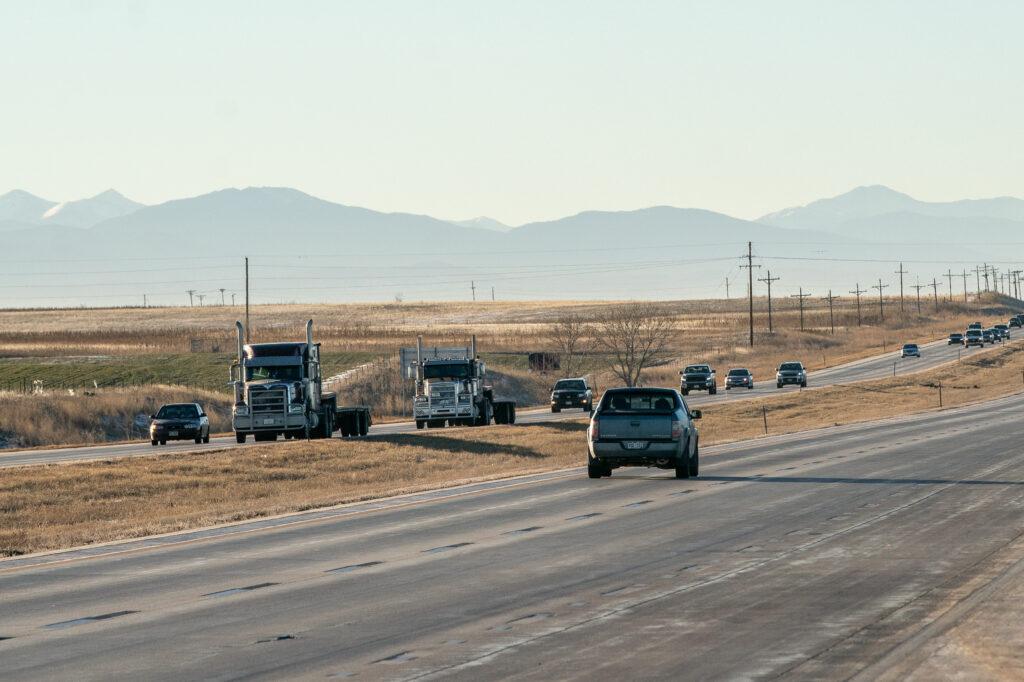
Bland disagreed with that assessment, arguing the state must have known about the problem area given that it had already been patched, that I-70 is heavily traveled and is only about 10 miles from a CDOT maintenance facility in Strasburg.
“I don't really think it's fair and just in our democracy that the government thinks that they're above being responsible for things that we're paying them to maintain,” he said.
CDOT referred questions to the Office of Risk Management, which declined to comment on Bland’s specific incident. But Platt, with the Office of Risk Management, provided data that shows that most motorists’ claims for damages sustained on state roads are denied.
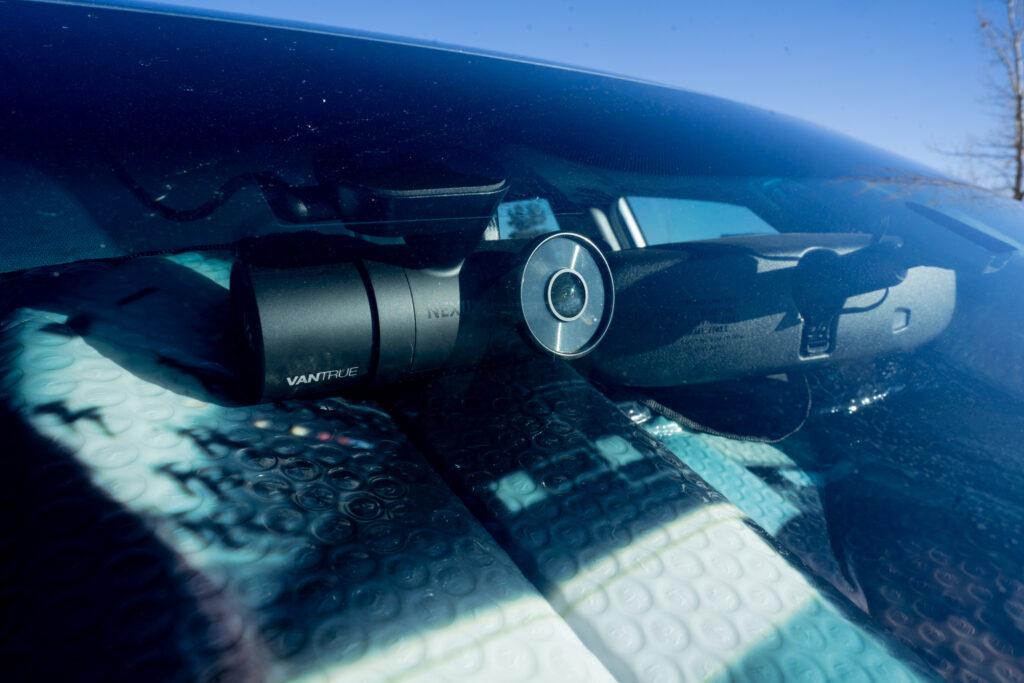
Just two out of 500 claims filed this fiscal year have been paid — totaling $2,414 — for two pothole-related incidents that took CDOT more than 30 days to repair after it learned of them. CDOT paid out $48,870 over just 14 of 1,458 claims in the prior two fiscal years.
Platt said those figures show the state responds adequately to road hazards more than 99 percent of the time. But Bland, who said filing a claim required him to print and mail a form, had another interpretation.
“There'd probably be, honestly, more claims, but the state has made it so difficult,” he said.
Bland said he paid more than $1,000 for a new set of tires. The other damage to his car is cosmetic though, so he’s leaving it for now.



